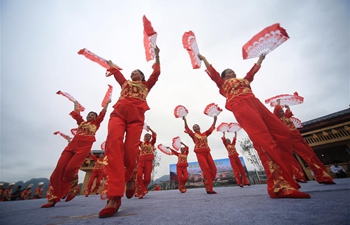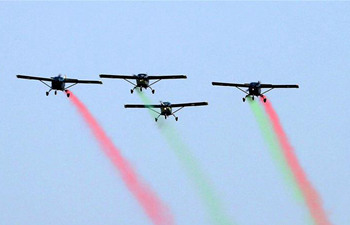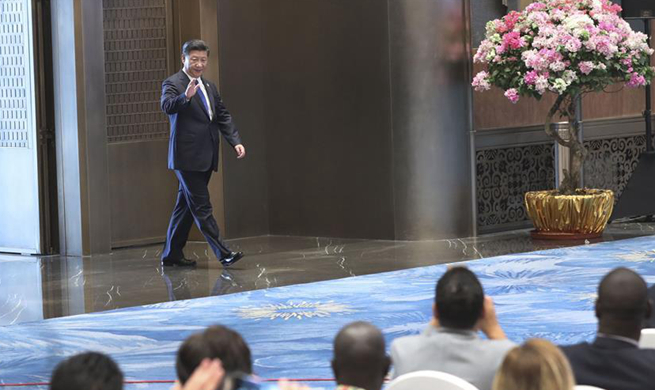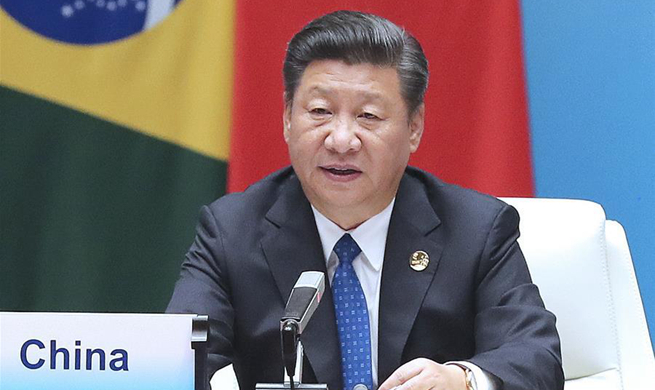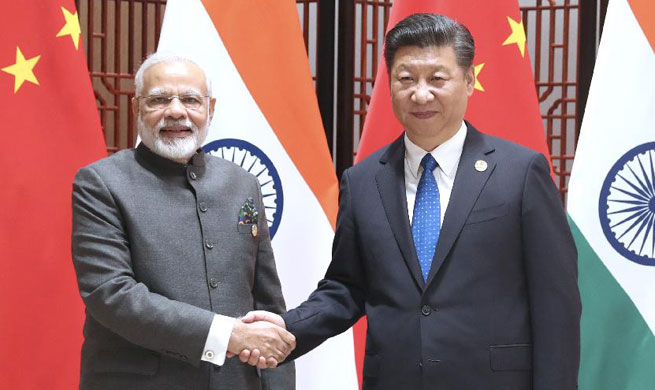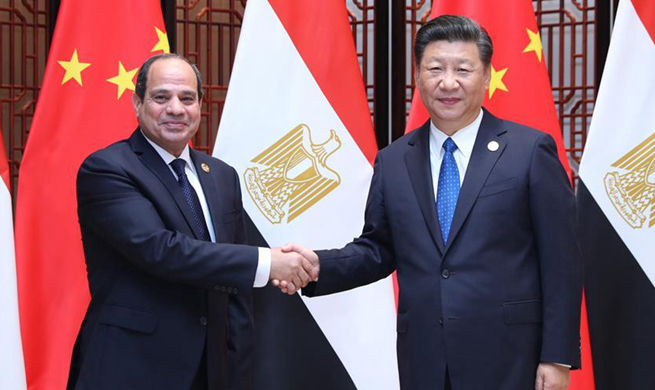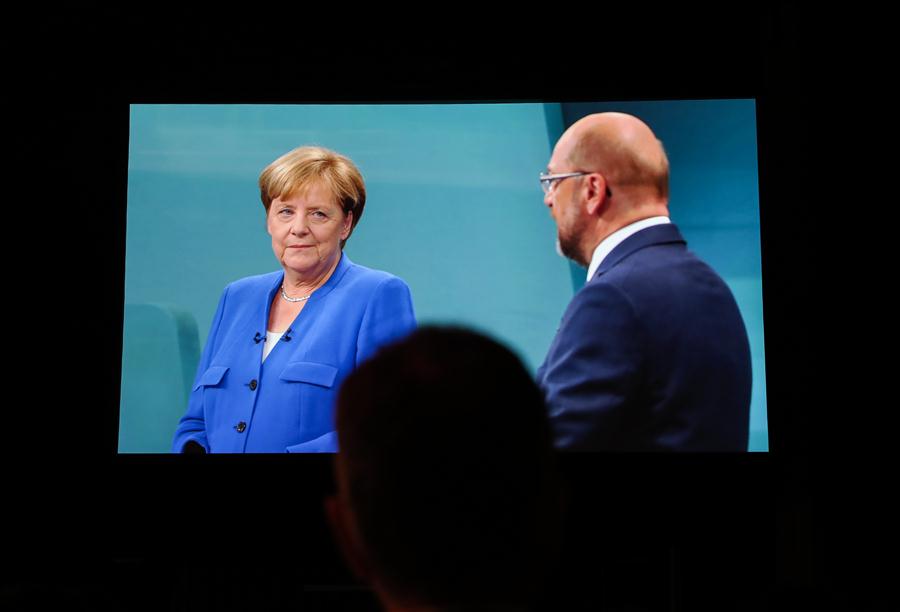
A man watches the TV duel between German Chancellor Angela Merkel and Martin Schulz, chancellor candidate of the Social Democratic Party (SPD), at a media center in Berlin, Germany, Sept. 3, 2017. German Chancellor Angela Merkel said Sunday night at the TV duel with Martin Schulz that although "radical Islamists" are perpetrating acts of terror in Europe, she still believed that "Islam belongs to Germany." (Xinhua/Shan Yuqi)
BERLIN, Sept. 4 (Xinhua) -- Support for Germany's ruling three-party "Grand Coalition" declined after a TV debate between Chancellor Angela Merkel of the Christian Democratic Union (CDU) and Social Democratic Party (SPD) candidate Martin Schulz, according to an opinion poll published Tuesday.
The poll, conducted by INSA political research institute and carried out by Bild newspaper, questioned 2,048 people on Sept. 1-3 ahead of the federal parliamentary elections on Sept. 24.
According to the poll, support for the CDU/Christian Social Union (CSU) fell 0.5 percentage points to 36.5 percent from the previous week, while support for the SPD fell 0.5 percentage points to 23.5 percent.
In combination, support for the ruling "Grand Coalition" between the CDU/CSU and the SPD declined to 60 percent.
In contrast, both the right-wing populist Alternative for Germany (AfD) Party and the Free Democratic Party advanced by 0.5 percentage points to voter tallies of 10.5 percent and 8.5 percent respectively. This represents the largest share of voter support the AfD has received since March and puts the party in the third place behind the CDU and the SPD.
Several commentators characterized the highly-anticipated exchange between Merkel and Schulz during their first and only TV debate as dry and uneventful, saying the two candidates were almost indistinguishable in the views they exhibited.
"Support for the parties of the Grand Coalition is weakening... but (their coalition) still receives more votes than any other governing constellation," INSA director Herman Binkert noted in a statement.
"Nevertheless, no matter which governing alliance is ultimately formed, opposition forces will be stronger than they have been previously," he added.




